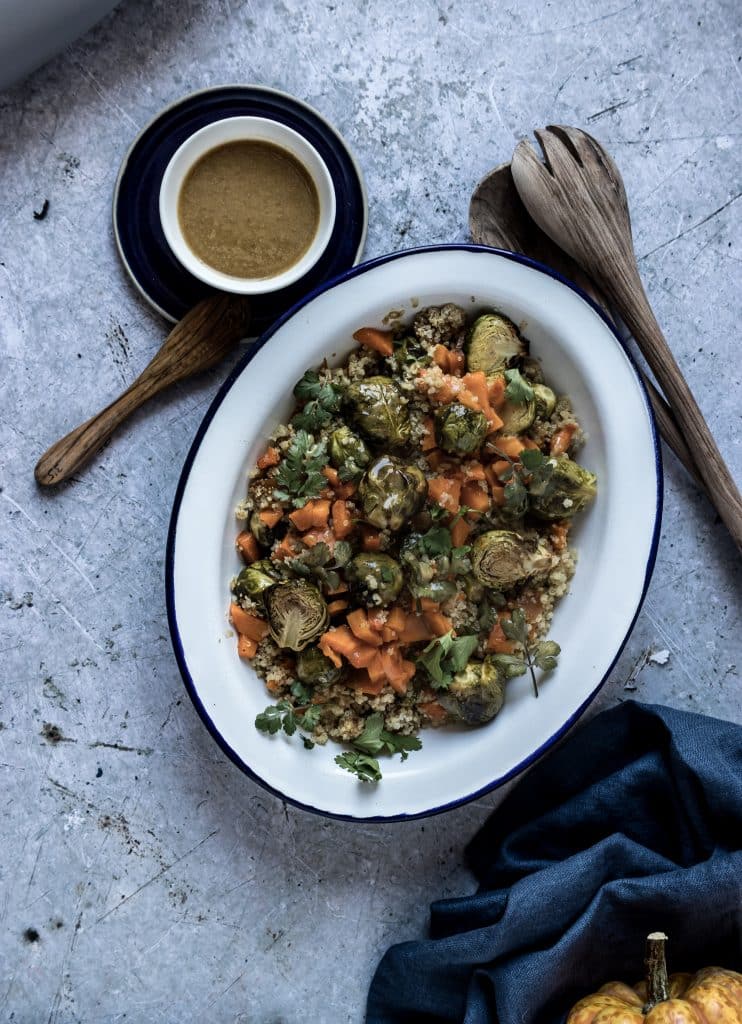Taking care of your heart is one of the most important things you can do for your health. To help protect and strengthen your cardiovascular system, establishing a diet that has heart healthy options is essential. Eating heart-friendly meals doesn’t have to be boring— plenty of delicious recipes are available. This article will share tips on how you can easily incorporate more heart-healthy ingredients into your day-to-day cooking routine to create flavorful dishes while simultaneously boosting your overall health!
From easy swaps that make traditional favorites healthier to full meal plan ideas, these tips will help make sure you’re eating well without sacrificing flavor or satisfaction.
Contents
- 1 The Importance Of Keeping Your Heart Healthy
- 2 10 Heart-Healthy Cooking Tips You Need To Know
- 3 Add Vegetables And Fruits
- 4 Choose A Variety Of Healthy Proteins
- 5 Cut Back On Salt
- 6 Get Creative With Grains
- 7 Try Different Types Of Healthy Fats
- 8 Avoid Artificial Sweeteners
- 9 Cook With Herbs And Spices For Flavor
- 10 Avoid Deep Frying
- 11 Keep Your Heart Healthy!
The Importance Of Keeping Your Heart Healthy

Keeping your heart healthy is arguably one of the most important things you can do to ensure a long, productive life. In addition to getting regular checkups by a cardiologist and developing good lifestyle habits like regular exercise, eating nutritious foods, and avoiding smoking, people have found several fascinating strategies to keep their hearts healthy. For example, a recent study found that having a positive attitude and focusing on gratitude strengthens the heart muscle, although more research will be needed to support this.
Additionally, emphasizing social connections remains key in supporting positive outcomes for the physical strength of your heart. That’s why it’s important for you all to make an effort to build meaningful connections with those who are close to you. Ultimately, by considering all these factors and ensuring your hearts receive proper care and attention, you can help them stay strong for years to come.
10 Heart-Healthy Cooking Tips You Need To Know
Add Vegetables And Fruits

Adding fruits and vegetables when cooking has many health benefits associated with it that can be beneficial for overall cardiovascular health. Eating plenty of fruits and vegetables raises levels of antioxidants in the body, preventing cell damage and reducing the risk of heart attack and stroke. Additionally, most vegetables have dietary fiber, which helps reduce bad cholesterol in your bloodstream.
The antioxidants found in fruits and vegetables also help improve immune function, which is essential for maintaining good cardiovascular health. Lastly, the high amount of minerals and vitamins commonly found in veggies and fruits provide essential nutrients to fuel the body while decreasing unhealthy fats, which can lead to heart disease. All these factors combined make adding more fruits and vegetables to your daily diet a great way to improve heart health.
Choose A Variety Of Healthy Proteins

Eating a variety of healthy proteins is one of the best ways to improve heart health, as they provide essential nutrients that help maintain and improve cardiac function. While lean red meats and poultry are the most commonly recommended sources of protein for a healthy diet. Other forms, such as fish, seafood, eggs, nuts, seeds, and legumes, can provide your body with essential vitamins and minerals that promote heart health. Eating several different types of proteins also helps lower cholesterol and promotes healthy blood sugar levels.
Additionally, substituting healthy protein options such as these in place of unhealthy options can have powerful long-term effects on health. Far too often, people default to processed meats or fried foods when thinking about having a rich protein meal. Incorporating a mix of healthy protein options into your meals can improve your heart health and make sure you are eating nutritiously overall.
Cut Back On Salt

Salt is an important ingredient to flavor food, but too much of it can adversely affect your health. Excessive salt intake has been linked to elevated cholesterol levels, raising the risk of heart disease and other illnesses such as hypertension and stroke. Consuming more than the recommended amount of salt can also cause dehydration, water retention, and increased blood pressure.
By reducing the amount of salt you use during cooking, or better yet, replacing it with low-sodium alternatives like herbs, garlic, and lemon juice, you will safeguard your heart health and enjoy new flavors in your homemade dishes. You’ll find that you won’t need as much salt once your taste buds adjust to the smaller amounts of sodium used in the cooking process. Cutting back on salt helps improve heart health and overall well-being by helping the body excrete harmful toxins built over time due to unhealthy diet choices. So to maintain a healthy body today and into the future, start cutting back on table salt when cooking!
Get Creative With Grains

With the current prevalence of heart disease, ensuring you do all you can to keep your heart healthy is essential. Eating whole grains is one way to do just that. Whole grains are rich in fiber and other vital nutrients, and when cooked creatively, they can be both delicious and nourishing. Adding different vegetables, herbs, and spices to your whole grain dishes gives them new and exciting flavors while reaping the health benefits of improved heart health.
Grains are versatile and have many possibilities, so get creative with them- you’ll be glad you did. Not only will you benefit from improved heart health, but adding grains also increases nutrient intake overall, leading to increased energy levels, improved digestion, and balanced blood sugar levels- making your body all around healthier.
Try Different Types Of Healthy Fats

Eating a healthy diet is essential for feeling energized and keeping your heart healthy. Many dietary guidelines recommend incorporating healthy fats into your daily routine. Fats like olive oil, avocado, and nuts offer the body benefits like improved cholesterol levels.
Incorporating varied forms of healthy fat into your diet is an easy way to boost flavor, improve nutrition intake, and support your overall well-being in the long run. Different types of fats can also give food more flavor and texture, making them an ideal choice when cooking. For example, adding nuts to salads or baking with olive oil can make meals more enjoyable while providing heart-healthy omega-3 fatty acids.
Avoid Artificial Sweeteners

Artificial sweeteners are very popular sugar substitutes, often used in foods and beverages aimed at health-conscious individuals seeking to reduce their calorie intake. While it may seem like a good idea initially, artificial sweeteners can harm your heart health when included in your cooking. Studies have shown that consuming more than one artificially sweetened beverage daily increases the risk of stroke or heart attack – not to mention potential long-term risks of cancer and obesity.
Not only this, but these fake sugars are completely void of nutrition, so overall, they can be detrimental to your body if used too frequently or in large amounts. To protect your heart health, it is always better to opt for natural alternatives such as honey or pure fruit juice whenever possible. Incorporating more nutritious options into your diet will provide you with many benefits beyond just helping keep a healthy heart functioning – including weight management and overall improved well-being.
Cook With Herbs And Spices For Flavor

Cooking with herbs and spices for flavor can be a delicious way to improve heart health and provide many other benefits. Most herbs and spices contain antioxidants, vitamins, minerals, and other beneficial plant compounds linked to reduced inflammation, improved cholesterol levels, lowered blood pressure, and increased overall nutrient intake.
Cooking with herbs and spices is a great way of upping your meals’ nutritional value while enhancing their flavors! Moreover, adding herbs and spices to your food instead of salt helps reduce sodium intake, an essential factor in maintaining cardiovascular health. Additionally, using these flavor-packing foods can make your meals even more nutritious and tasty while allowing you to decrease the use of unhealthy condiments and sauces.
Avoid Deep Frying

Deep frying is a popular cooking method; however, its reliance on oil should be avoided if heart health is a concern. Frying food in large quantities of oil can significantly increase your food’s total fat and calories. This excess fat often leads to weight gain, which can strain the heart. Additionally, deep-fried foods are unhealthy because they tend to contain high amounts of trans fats, which need to be eliminated from your diet completely for optimal heart health.
Eating healthier will improve your cardiovascular health and provide additional benefits such as increased energy and improved digestion. Eating a diet high in trans fats has been linked to higher cholesterol levels and can increase the risk of heart disease or stroke. If you want to make healthier decisions for your heart, try opting for lighter cooking methods like steaming, boiling, or roasting, as these techniques do not involve oils.
Keep Your Heart Healthy!
Heart health is essential to living a long and happy life, so it is vital to take steps toward keeping your heart healthy. Eating healthy doesn’t have to be complicated – start small by reducing the amount of unhealthy fats or sugars you use and incorporate more nutritious options such as herbs, spices, and vegetables. Making these small changes will help you to create a heart-healthy diet that is both enjoyable and beneficial for your overall health! By incorporating these tips into your cooking routine, you can make healthier dietary choices while still enjoying delicious meals.


